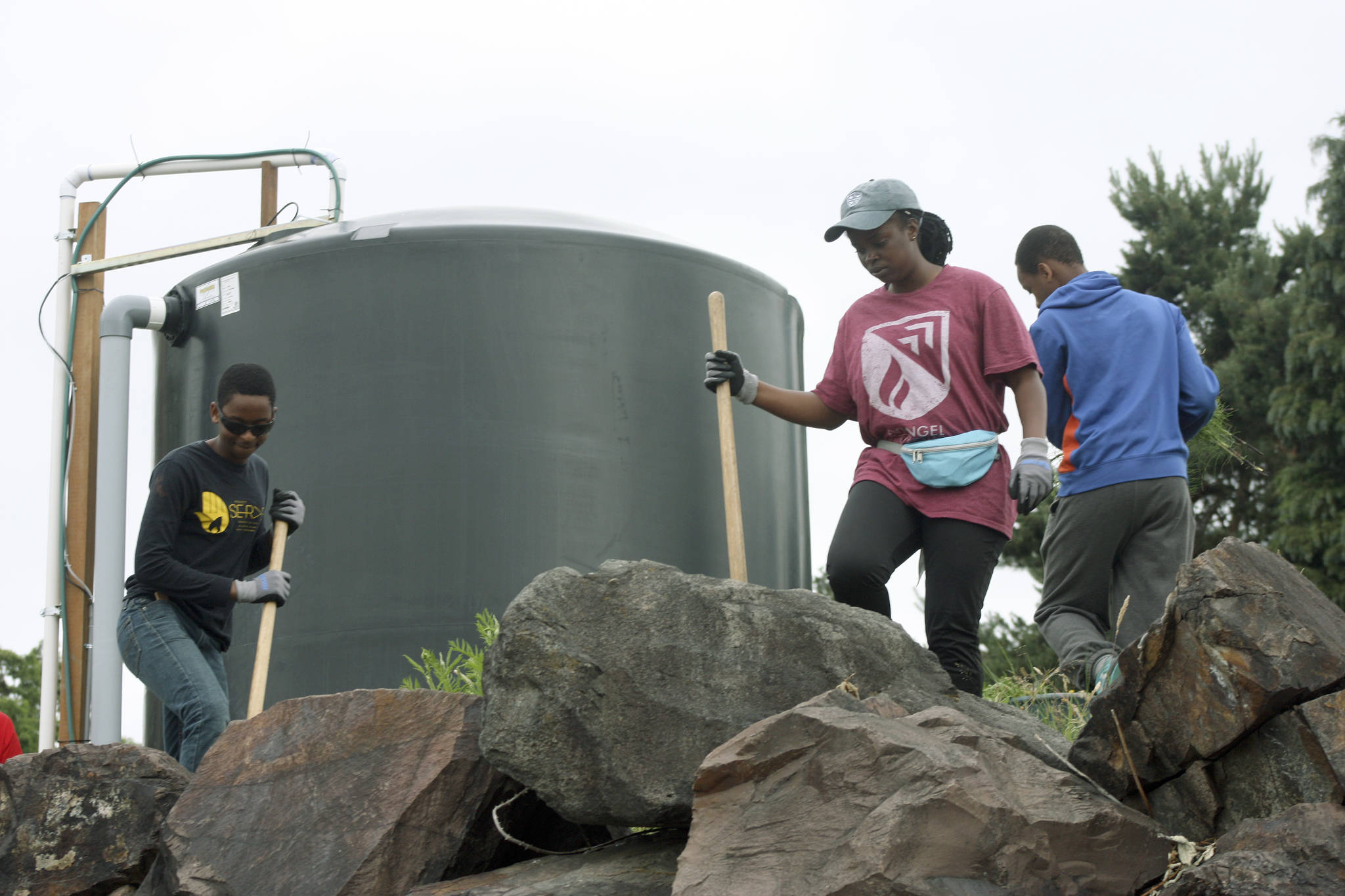Volunteer ingenuity and muscle continue to feed a Kent community garden that’s growing international flavor this summer.
The latest work party effort last weekend helped remove invasive, noxious weeds from the Paradise Parking Plots Community Garden, a 1-acre site with 50 garden plots irrigated by harvested rainwater collected and stored in four 4,000-gallon cisterns.
Ethan Jensen, a volunteer with Hillside Church, where a back-lot parking lot has been transformed into the garden, was busy lifting weeds and mowing strips of lawn between plots last Saturday.
“It’s a great chance to get some work done and help with the flooding problem,” Jensen said. “This is very worthwhile. It’s a good investment of our money. And they get to grow what they want.”
The community garden off East Smith Street – made possible through King County money – is providing food and kinship to newly arrived immigrants and refugees, as well as a green infrastructure to irrigate the gardens and reduce stormwater runoff.
World Relief Seattle, a Kent-based refugee resettlement organization, received $144,227 through King County’s WaterWorks Grant Program to install large rain gardens at the church parking lot, which reduces polluted runoff and protects local streams.
The Kent project was among 23 local environmental endeavors that protect water quality, control pollution and build healthy communities that received county funding. The Kent garden was officially unveiled to the public on May 9.
The garden is as much an environmental project as it is a producer of food.
“Water is going into the ground in a good way,” said Tahmina Martelly, resiliency programs manager for World Relief Seattle, who was part of the work party. “Water that rolls off the roof and goes into the stormwater system we are capturing it usefully for irrigation and reducing the impact to the stormwater system.”
Five rain gardens will be built on site, Marelly added, and the public can learn more about them. Students from Mill Creek Middle School and Kent-Meridian High School provided input on the design of the rain gardens.
Gardeners from 19 countries are organically growing a wide variety of food that’s culturally appropriate.
King County’s Wastewater Treatment Division allocated $75,000 in funding to a project led by World Relief Seattle and the Hillside Church to reduce stormwater pollution and control flooding through the inventive use of green stormwater infrastructure.
In addition to reducing impervious surface and polluted runoff, the transformed site offers a place for community members to bond while growing their own healthy and culturally appropriate food. The garden project will also feature a full-service commercial kitchen, offering classes on harvest preservation including canning, freezing and fermenting techniques.
Learn more at worldreliefseattle.org/garden.
Talk to us
Please share your story tips by emailing editor@kentreporter.com.
To share your opinion for publication, submit a letter through our website https://www.kentreporter.com/submit-letter/. Include your name, address and daytime phone number. (We’ll only publish your name and hometown.) Please keep letters to 300 words or less.

